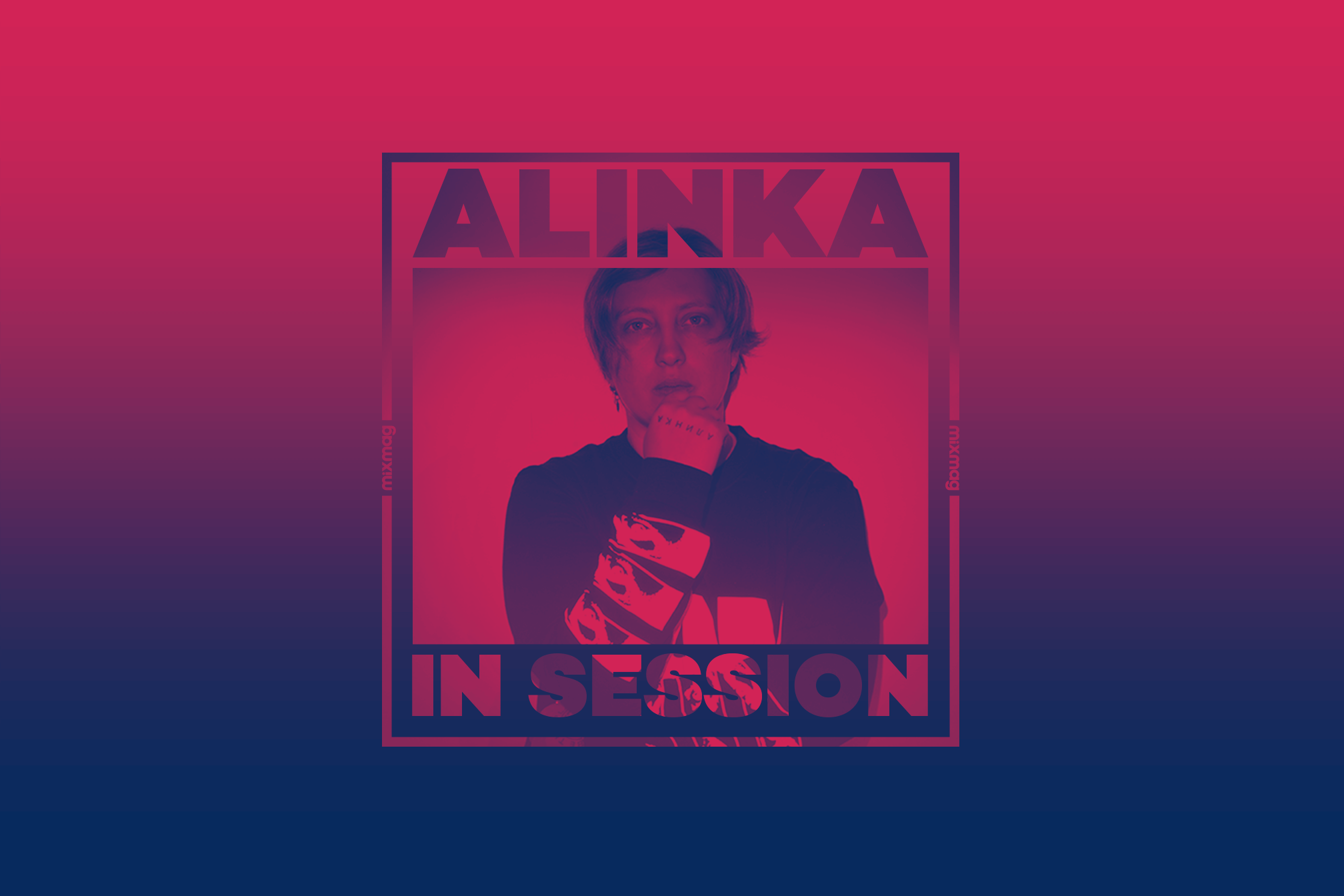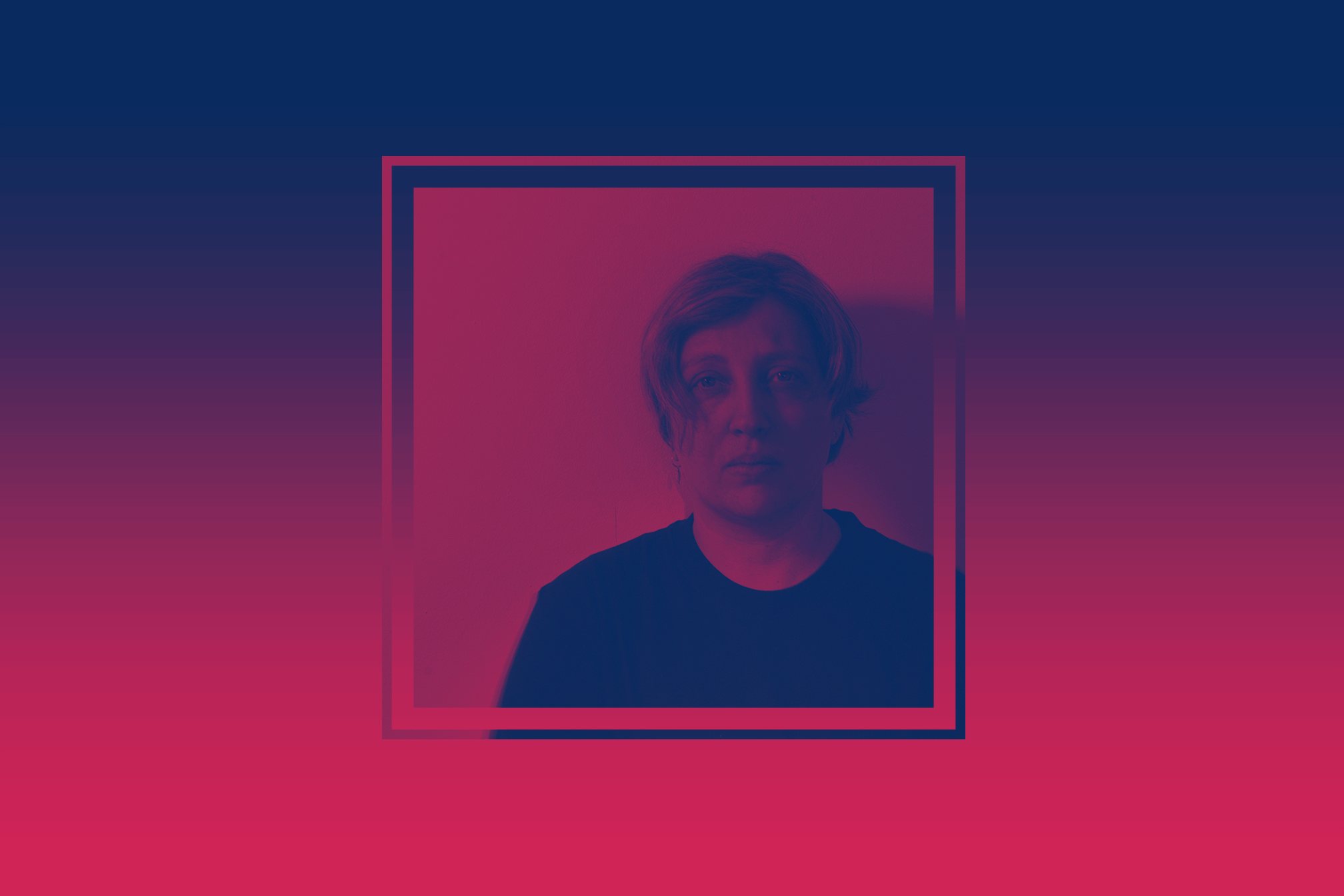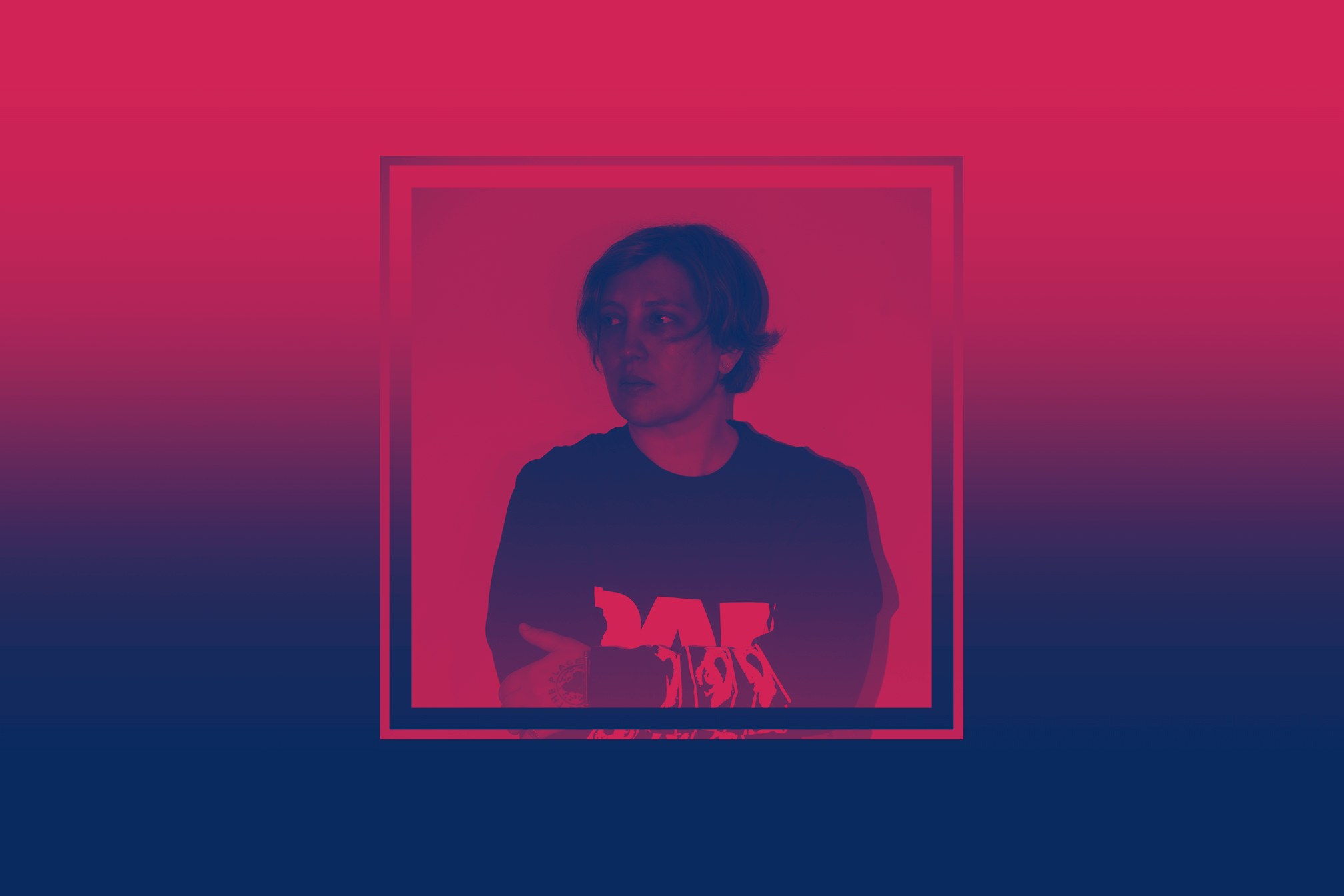 Music
Music
In Session: Alinka
Kyiv-born, Chicago-raised DJ Alinka delivers an hour of energising house
When Alinka was seven-and-a-half, her family migrated from Soviet Ukraine to the United States. She grew up in Chicago, discovering house music through local radio stations and eventually quitting university in favour of becoming a resident at the long-standing venue Smartbar and diving headfirst into producing music.
But balancing her passion with the reality of a working musician in the US and family expectations was hard. Alinka burnt out and quit music for a few years, working an office job and binging on music videos by acts such as Hercules & Love Affair, a house band whose membership includes vocalist Shaun J. Wright.
Two years later, Wright and Alinka met. They immediately hit it off and created Twirl, a party and a label housing their own music (if not released by the likes of Derrick Carter and Luke Solomon's Classic Music Company), as well as iconic house voices as Josh Caffe and Aerea Negrot. The creative collaboration and close comradery between Alinka and Wright offered her confidence to give a career in the nightlife another chance.
Read this next: 30 of the best Chicago house tracks
She moved to Berlin, becoming a regular DJ at Panorama Bar and touring in locations such as London and her native Kyiv. Quitting her day job not long before the pandemic proved risky but beneficial: in 2021 alone, Alinka released music on such cult labels as Balkan Vinyl, Needwant and Rekids.
When I call her on a Thursday night ahead of the release of her new EP featuring none other than Chicago house OG Robert Owens, she’s readying for a gig at fabric and talks about creating emotions-first music, turning a hobby into a career, and spotlighting Ukrainian artists. Check out the Q&A alongside her energising In Session mix below.

How well do you know Robert Owens?
Obviously, he’s been one of my favourite vocalists and my heroes. We are both from Chicago, I mean, one of the first records I owned was 'Ordinary People'. When I first moved to Berlin, I think we met at Berghain through Shaun J. Wright. We talked about doing something for a while but it took a few years.
When I started to do the EP for HE.SHE.THEY., Stephen — they manage Robert — suggested it and I was like, ‘Perfect’. But it took me a while to finish it. Probably the longest, because I put so much pressure on it. I can’t remember if it was before COVID — it was hard to write for a bit. I had to take a break so it took me a while to finish it and also, it's Robert’s vocals! I was being a perfectionist.
You once said it took you 10 years to start liking anything you make.
Yeah… but it’s also the case that when I try to plan what I want something to sound like, it doesn't really work for me, so it's really emotional. When you aren't feeling your best and all this stuff is happening, it's hard to write happier music. I had to put it aside and not listen to it, then come back and finish it. When I was ready to do it, then it worked out. It's not that I ever did not like it. I have to write when I'm feeling the mood for that track. It came together quickly once I was ready to work again.
Read this next: A generation of DJs are working 9 to 5 without compromising their music dream
At one point, you quit music altogether. Why?
I started when I was 20-years-old. I fell in love with it and didn't want to do anything else with my life. I was going to university and I quit to go be a DJ, then started playing at Smartbar and travelling a bit. But at the same time… I guess, when you're young, you don't want the thing that you love the most to feel like a job. So I didn't get a manager or an agent or do all these things that would have made it more professional.
Even though I was playing a lot and learning a lot and putting out music, by the time I hit 28… When you're in America, it's very hard to support yourself with art and I had pressure from my family and the world — I burnt out. If I’m not going to be able to earn enough money to live and always have to have a second job, what's the point?
Also, the music changed. Between when I started and 2008, things shifted towards minimal and tech-house and I just didn't feel the music as much. I wasn't as inspired as when I got into it. It was more of a personal thing, but I learned a lot of lessons. It's okay, actually, to take the thing that you want to do with your life and make it into your job. You love your work. There's nothing wrong with that.
Personally, I needed to take a break to re-evaluate and figure out my own life and come back to it under different terms. When I found it again, I just wanted to do it for fun, without any pressure. That's when everything came together and I met Shaun and things took off. I was able to do it because I was older, and in a different way, I was able to take it more seriously and do it professionally the second time around.
What was Shaun’s influence on you?
I still remember the first day that he came over. I was really nervous. I mean, when my manager told me that Shaun J. Wright from Hercules & Love Affair just moved here and he's looking for producers, I immediately fell out of my chair and was like 'Why didn't you tell me sooner?!'
He came to my house. We started talking about Chicago, Dajae and Cajual Records, and we ended up going to Smartbar together. We bonded right away. I met someone that's supposed to be in my life forever. Every studio session from then was really, really, really inspiring. He'd come to my house and we'd start going, and I fell in love with house music all over again because of Shaun. His knowledge of music is crazy, I learned so much and got reminded of so many good records.
We lived together for a bit in Chicago before I moved to Berlin. We did a lot of DJing and I've met so many of my friends now, and people who are important to me, through Shaun. It was a monumental time, any time that we spent together between Berlin, Chicago and New York and wherever we travelled.
Shaun's one of the most positive people you'll ever meet. I'm always anxious and worried that it's the last day on Earth basically, and Shaun grounds me and makes me feel better. He gave me a lot of confidence as a producer because I looked up to him so much as an artist, and was such a fan of the band. Because he believed in the music we were creating, it made me grow exponentially.

Why did you move to Berlin then?
I wanted to leave Chicago for like an entire decade. I was saving money, doing all these jobs and being completely miserable. But I couldn't figure out where I want to go. I've thought about New York and LA, and I kept vising places. I could never commit. I didn't find a place until I came to Berlin. I had two shows here and I was really, really sick, I had a crazy ear infection, I was on antibiotics and I still had the greatest week of my life. I was like, 'This place feels like home'.
I don’t know how to explain it except that it doesn't feel like the glass is half empty here, it feels like it's half full. You have endless possibilities. You have people of all ages going out and you don't have to feel like you're too old to go to clubs. It's just an inspiring city, I fell in love with it. I knew that I would like to at least try to be here for a while and to embrace the culture finally. I spent so much time talking myself out of doing this for a living that it was time to commit and be where the centre of it is.
It’s also that in America, there was no health insurance for years. These are things you start to think about when you're older because you can't afford to get sick. People tell you that your art is a hobby basically, your entire career... And very few people succeed in making it their only day job. When you see the struggles of people, especially your mentors, people older than you, it does take a tax on you.
Here, lots of people do arts and, of course, still have jobs and there's nothing wrong with that whatsoever. I had a day job for the majority of my career. I only quit two-and-a-half years ago, just because I'm so used to having one that even when I was touring and I didn't need one financially, I still had one because I was terrified of quitting it. It's hard to get the confidence when you're so used to being told that you shouldn't rely on something financially.
What was your migration to Chicago like?
My family didn't tell me we were leaving until the night before, so for me, it was very quick. I think my parents told me we were going camping and I kept inviting my friends. They were like, 'Your friends can't come' and I didn't understand why. The night before, they said ‘We're not coming back' and everybody was crying, our family and friends, and I was like, 'What are you talking about? We're just going camping.'
We never really talk about it. Now, with everything that's happing, my mum is telling me stories about Ukraine and our family. But I think when a traumatic thing happens when you're little, you avoid talking about it for a while. Now, I want to know everything. Like, my great grandfather was a violinist at the Kyiv Philharmonic and then got sent to a Stalin's camp and never played again. It happened to my grandfather too. It's crazy to think that I get to play music for a living when the generations of musicians in my family went through all this trauma.
Read this next: Kyiv producer John Object on fighting for Ukraine
You've played at Kyiv's club ∄ quite regularly since late 2019.
Yeah, I started playing there a month after they first opened. When they brought me back, I hadn't been to Kyiv since I was eight-years-old. I always wanted to go back but I didn't travel that much, I had no money. I was only travelling for my shows. So this was super emotional.
When I played the first time, I was really nervous. The club is insane, obviously, really good. It was techno before me and I wasn't sure, so I played a bit harder because I didn't know what they wanted. But I remember people were so warm and kind, coming up and shaking my hand after, I just started crying. And then it became a tradition, the more I’d play house and Italo and more emotional stuff. I cried basically every time I DJed there.
I connect with people differently there. Because I'm from there, it brought up a lot of stuff, being re-connected with your home and feeling whole again. That missing piece, it all made sense, of why I felt that way. I felt healed from going there, a bit. A club is an emotional place. It's crazy energy there and the people and team are amazing. I've never felt more connected to a place, to the people I'm playing for, than I did there or I do there.
The thing that's important for me, I don't want to be a voice for Ukraine. I haven't lived there since I was eight. I can give my perspective as an immigrant, but I don't want to take any voices from Ukrainian artists that left their families and homes and are dealing with this stress. I think it's very important to share their stories and I don't want to take the space for that.
If people ask me to talk about this stuff, I refer to artists from there first. I don't want to be a distraction. The club is doing a great job with the residents. I learned about so many Ukrainian artists from the Standard Deviation label, and from just going there. There's so much talent, in all genres.
How did you write the track 'Putin Huilo' for its fundraising compilation?
I got the email about the compilation when I was at one of the first demos. I ran home and wrote that track in like nine hours, submitting it by the next day. So I wrote it for what's happening. I was really emotional at that time. I think I cried for four weeks straight. Music for me is an easier way to express myself. Especially if I'm super emotional about something, it's easier to write a track than talk about it. I wanted to rush home and do something special for this.
I mean, if I didn't finish the track and it was shit, I probably would have submitted something else, but it worked out, I think. I just went crazy. I put my headphones on and didn't stop until I was finished. When you're feeling so much, sometimes you go on autopilot and write. I mean, I think I was crying while I was writing it as well but I wrote the words at the demo, on the way back from the train. So I wrote the lyrics, came home and started recording. I was sad but I wanted to write something uplifting and full of hope.
Can you tell us about your In Session mix?
This mix is dedicated to my first love, house music. I wanted it to fit the vibe of my new EP with Robert Owens, so it's a lot of tracks I like dancing to at the club and in my living room.
Alinka feat. Robert Owens 'Midnight Ride' is out now on HE.SHE.THEY., get it here
Mariia Ustimenko is a freelance writer, follow her on Twitter
Tracklist:
1. Flim Flam (Smith & Selway Remix) - Yellow Sox (Yoshitoshi Recordings)
2. Future (Guy J Remix) - Halo Varga (Lost & Found)
3. Infinite Breath - Baldo (Step Recordings)
4. Work 4 Love - Garrett David (MATE)
5. And The Beat Goes On - Alinka (HE.SHE.THEY.)
6. The Sound (Jansons Remix) - Bushwacka! (Oblong Records)
7. Mind Control (Paula Tape Remix) - John Noseda (Correspondant)
8. Freak Shit - Warehouse Preservation Society (Wonder Stories)
9. The Tribute - Acid Jerks (Nu Groove)
10. Don’t Stop (No Pares Mix) - Todd Terry, Swan Lake (Freeze Records)
11. Rise Up (Harry Romero Remix) - Moreno Pezzolato (Incorrect)
12. Little World - Elliot Adamson (IDEA)
13. Midnight Ride (Chicago Dub) - Alinka featuring Robert Owens (HE.SHE.THEY.)
14. Lango Time - Garrett David (MATE)


